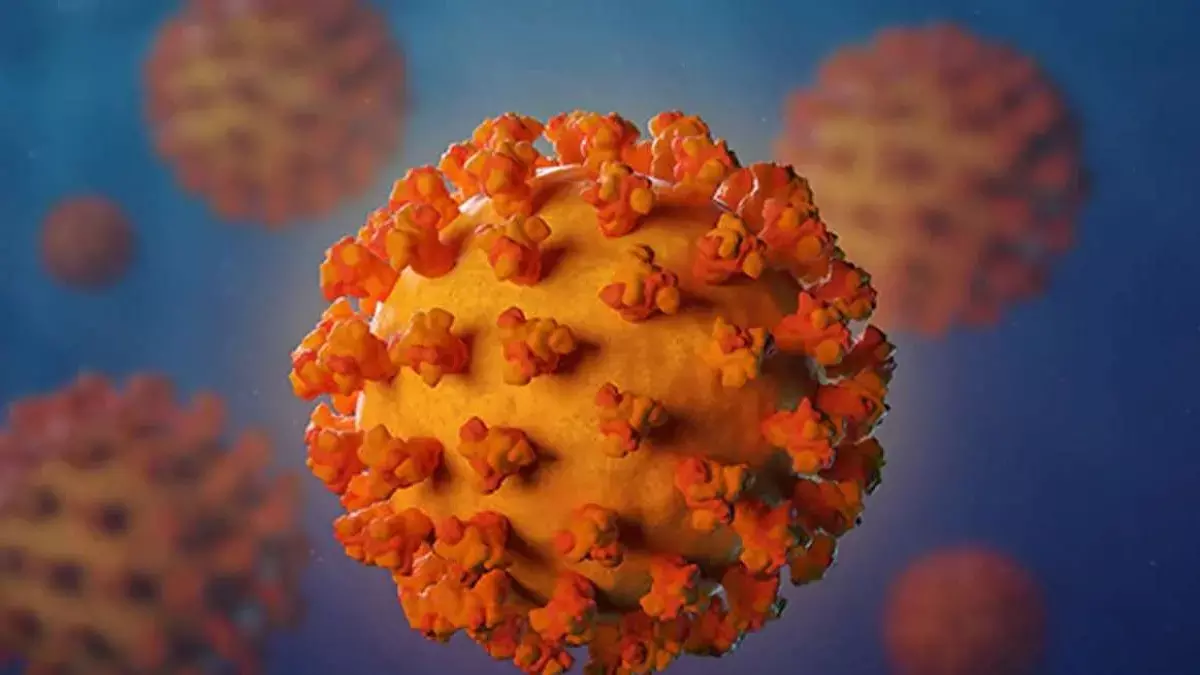- Home
- Medical news & Guidelines
- Anesthesiology
- Cardiology and CTVS
- Critical Care
- Dentistry
- Dermatology
- Diabetes and Endocrinology
- ENT
- Gastroenterology
- Medicine
- Nephrology
- Neurology
- Obstretics-Gynaecology
- Oncology
- Ophthalmology
- Orthopaedics
- Pediatrics-Neonatology
- Psychiatry
- Pulmonology
- Radiology
- Surgery
- Urology
- Laboratory Medicine
- Diet
- Nursing
- Paramedical
- Physiotherapy
- Health news
- Fact Check
- Bone Health Fact Check
- Brain Health Fact Check
- Cancer Related Fact Check
- Child Care Fact Check
- Dental and oral health fact check
- Diabetes and metabolic health fact check
- Diet and Nutrition Fact Check
- Eye and ENT Care Fact Check
- Fitness fact check
- Gut health fact check
- Heart health fact check
- Kidney health fact check
- Medical education fact check
- Men's health fact check
- Respiratory fact check
- Skin and hair care fact check
- Vaccine and Immunization fact check
- Women's health fact check
- AYUSH
- State News
- Andaman and Nicobar Islands
- Andhra Pradesh
- Arunachal Pradesh
- Assam
- Bihar
- Chandigarh
- Chattisgarh
- Dadra and Nagar Haveli
- Daman and Diu
- Delhi
- Goa
- Gujarat
- Haryana
- Himachal Pradesh
- Jammu & Kashmir
- Jharkhand
- Karnataka
- Kerala
- Ladakh
- Lakshadweep
- Madhya Pradesh
- Maharashtra
- Manipur
- Meghalaya
- Mizoram
- Nagaland
- Odisha
- Puducherry
- Punjab
- Rajasthan
- Sikkim
- Tamil Nadu
- Telangana
- Tripura
- Uttar Pradesh
- Uttrakhand
- West Bengal
- Medical Education
- Industry
Sinonasal symptoms- important diagnostic tool in SARS-CoV-2 infection

No study to date has analyzed the progression of sinonasal symptoms over time in COVID-19 patients. Sinonasal symptoms, particularly loss of smell and taste, may be important presenting symptoms in the mild severity COVID-19 patient, reported a recent study.
The study is published in the American Journal of Otolaryngology.
Richard A.Raad and colleagues from the Department of Otorhinolaryngology – Head & Neck Surgery, Rush University Medical Center, Chicago, United States of America recently conducted a research with the sole purpose to analyze the progression of sinonasal symptoms and risk factors for olfactory dysfunction in the mild severity COVID-19 patient.
An internet survey was used to assess sinonasal symptoms in patients with COVID-19. Changes in rhinologic domain and symptom-specific Sinonasal Outcome Test (SNOT-22) scores were compared at five time points: two weeks before diagnosis, at diagnosis, two weeks after diagnosis, four weeks after diagnosis, and six months after diagnosis.
521 responses were collected. Rhinologic domain SNOT-22 scores increased significantly (p < 0.001) to 8.94 at the time of diagnosis, remained elevated two weeks post-diagnosis (5.14, p = 0.004), and decreased significantly four weeks post-diagnosis (3.14, p = 0.004).
It was also observed that smell-specific SNOT-22 scores peaked at the time of diagnosis (2.05, p < 0.001), remained elevated two weeks after diagnosis (1.19, p < 0.001), and returned to baseline four weeks post-diagnosis (0.64, p > 0.999).
Furthermore, taste-specific SNOT-22 scores also peaked at diagnosis (2.06, p < 0.001), remained elevated two weeks after diagnosis (1.19, p < 0.001), and returned to baseline four weeks after diagnosis (0.71, p > 0.999).
However, there were no significant differences in sense of smell or taste between 1-month and 6-month time points.
Hence, the authors led to this conclusion that sinonasal symptoms, particularly loss of smell and taste, may be important presenting symptoms in the mild severity COVID-19 patient.
The findings support incorporating these symptoms into screening protocols, they further added.
Dr. Nandita Mohan is a practicing pediatric dentist with more than 5 years of clinical work experience. Along with this, she is equally interested in keeping herself up to date about the latest developments in the field of medicine and dentistry which is the driving force for her to be in association with Medical Dialogues. She also has her name attached with many publications; both national and international. She has pursued her BDS from Rajiv Gandhi University of Health Sciences, Bangalore and later went to enter her dream specialty (MDS) in the Department of Pedodontics and Preventive Dentistry from Pt. B.D. Sharma University of Health Sciences. Through all the years of experience, her core interest in learning something new has never stopped. She can be contacted at editorial@medicaldialogues.in. Contact no. 011-43720751
Dr Kamal Kant Kohli-MBBS, DTCD- a chest specialist with more than 30 years of practice and a flair for writing clinical articles, Dr Kamal Kant Kohli joined Medical Dialogues as a Chief Editor of Medical News. Besides writing articles, as an editor, he proofreads and verifies all the medical content published on Medical Dialogues including those coming from journals, studies,medical conferences,guidelines etc. Email: drkohli@medicaldialogues.in. Contact no. 011-43720751


